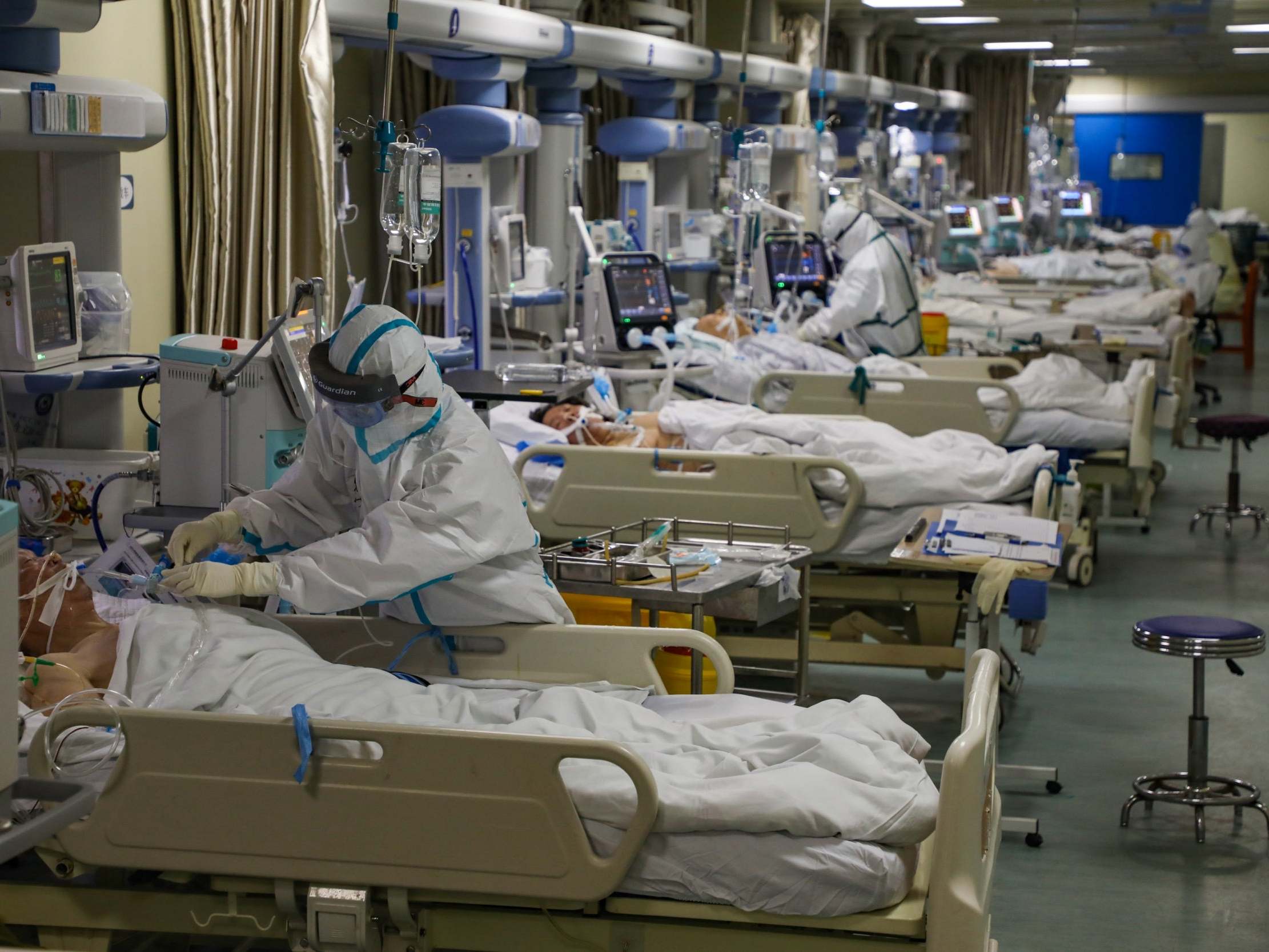‘We cannot stop the virus’: Europe woefully unprepared for coronavirus pandemic, doctors warn
‘For the last decade across Europe we have been cutting down on hospital beds, including intensive care beds. And now we are realising that we don’t have enough’

Your support helps us to tell the story
From reproductive rights to climate change to Big Tech, The Independent is on the ground when the story is developing. Whether it's investigating the financials of Elon Musk's pro-Trump PAC or producing our latest documentary, 'The A Word', which shines a light on the American women fighting for reproductive rights, we know how important it is to parse out the facts from the messaging.
At such a critical moment in US history, we need reporters on the ground. Your donation allows us to keep sending journalists to speak to both sides of the story.
The Independent is trusted by Americans across the entire political spectrum. And unlike many other quality news outlets, we choose not to lock Americans out of our reporting and analysis with paywalls. We believe quality journalism should be available to everyone, paid for by those who can afford it.
Your support makes all the difference.A lack of coordination between countries and not enough intensive care beds across Europe means the continent is poorly prepared to fight the coronavirus outbreak, the president of the European Society of Anaesthesiology has warned.
The ESA has also warned that unpublished data from hospitals in Italy showed that while the majority of critical patients were elderly, one in five was aged under 50 and did not have underlying health conditions.
Professor Kai Zacharowski said: “Governments in Europe, including the United Kingdom, have not prepared together for the unbelievable stretch on our health services being caused by this pandemic. We have not been able to organise ourselves in a way to have everything that we need, such as enough ventilators to be able to treat large numbers of patients in intensive care at the same time.”
Prof Zacharowski, from the University Hospital Frankfurt in Germany, said anaesthetists along with intensive care doctors were going to be on the frontline in the battle to stop the pandemic sweeping across the continent.
His criticism comes as the UK government has issued an appeal to engineering firms who may be able to help ramp up the production of ventilators, which will be needed to support patients who develop severe pneumonia as a result of the Covid-19 virus.
Prof Zacharowski said: “We cannot stop the virus, all we can do is try to stretch out the peak of cases that need intensive care, so that we will be able to treat as many seriously ill patients as possible. Unfortunately, as the experience in Italy is showing, there are going to be times when very difficult decisions have to be made about who gets treatment and who does not, based on the likelihood of survival.”
He added: “For the last decade across Europe we have been cutting down on hospital beds, including intensive care beds. And now we are realising that we don’t have enough. If we had arranged and distributed equipment at the right time, countries might have been able to avoid the situation in Italy. But now, there has been a rush to order equipment such as ventilators, which companies are struggling to provide due to interruption in supply of parts from China.”
The UK has just over 4,000 adult intensive care beds with a bed occupancy rate each day of around 83 per cent, according to the latest figures from NHS England.
Compared with the rest of Europe, the UK has one of the lowest rates of ICU beds per head, with Italy having twice as many.
The ESA’s former president Stefan De Hert revealed that unpublished data from Italian doctors found that while the vast majority of coronavirus patients were older, one in five patients needing critical care were younger.
He said: “Although it is mostly more serious in older patients, patients less than 50 years old without underlying conditions seem to constitute one in every five of the Covid-19 ICU patients.
“The mean age of all Covid-19 patients is 70 years, and one of the major risk factors for admission to intensive care is obesity.
“Finally, infected women seem to develop fewer symptoms than men, and also children seem to experience the infection without important clinical problems. These data are quite similar to what we have learned from the experiences of our Chinese colleagues.”
Join our commenting forum
Join thought-provoking conversations, follow other Independent readers and see their replies
Comments